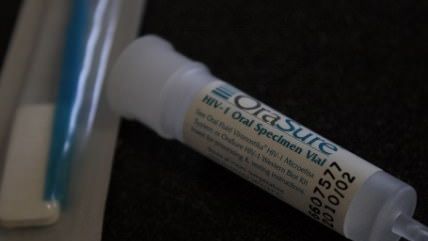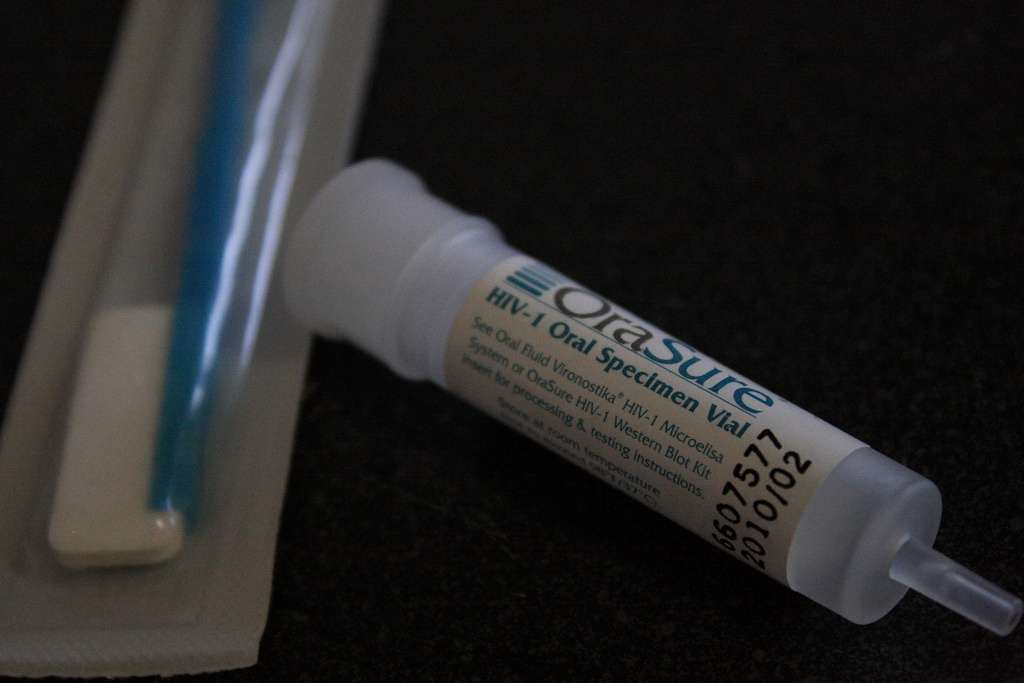Could We Kill Off HIV Without Ever Curing It?
Drug advances can stop the spread of the virus, if we can get them into the right people's hands.


According to the World Health Organization (WHO), about 1.5 million people died worldwide of illnesses connected to HIV infections in 2013. That looks like a big number, but it's a 22 percent drop from 2009 and a 35 percent drop in deaths from 2005. WHO calculates that HIV drug therapy has prevented more than 7 million deaths between 1995 and 2013.
Some new HIV drug research findings were released this week that affirm a scientific understanding that has been growing now for a few years. HIV drug therapy has advanced to the point where the virus can be fully suppressed and rendered non-transmittable. This latest study, released by the University of North Carolina, Chapel Hill, is the result of a decade-long project that included more than 1,700 couples living around the world. From The News & Observer in Raleigh, North Carolina:
The significance of the research findings is that AIDS medications, when used consistently, can break the chain of HIV transmission, with the potential to eradicate the virus when all infected people die natural deaths. For the foreseeable future, however, such a medical strategy will disproportionately benefit industrialized countries whose residents have wider, though far from universal, access to modern health care.
The landmark study, financed with more than $100 million in federal research grants, confirmed initial results reported in 2011 and demonstrated that AIDS medications known as antiretroviral therapy, or ART, can suppress the virus for years. The virus can reemerge if the patient stops taking the medicine, but as long as it's suppressed, the virus is essentially harmless and most patients can lead normal, healthy lives.
"If people are taking their pills reliably and they're taking them for some period of time, the probability of transmission in this study is actually zero," Cohen said by phone from Vancouver. "Let me say it another way: We never saw a case of HIV transmission in a person who is stably suppressed on ART."
All the participants in the study were also provided condoms as an extra safety barrier. But there were several pregnancies among those who participated in the study, highlighting that condoms were hardly the last word in prophylactics.
If we were to embrace the suppression of HIV as a way of killing it off, there is still the matter of getting it into the hands of those who are infected. The Centers for Disease Control estimates 50,000 Americans are infected every year, but less than 40 percent of those people are on drugs to suppress HIV. That treatment gap assures that the hunt for a full vaccine will continue.
The development that we have been able to stop the transmission of the HIV virus for a few years now should nevertheless be held up as a significant breakthrough. The biggest public health crisis of the late 1980s-1990s, one that permanently changed the way citizens of developed countries viewed sex and sexuality, could actually end someday.
Related: Truvada, an HIV suppressor that can be used by the HIV-negative people as a prophylactic, is taking off as a treatment in urban centers.


Show Comments (32)